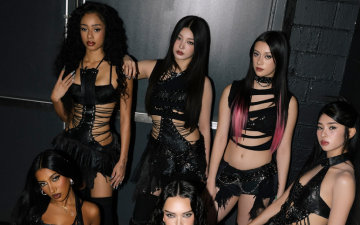Probe N. Koreas war crimes
The U.N. International Criminal Court has started a preliminary probe into North Koreas shelling of Yeonpyeong Island last month and the sinking of the South Korean warship Cheonan in March to determine if the two incidents constitute war crimes. The court was established in 2002 to prosecute individuals who committed international offenses such as war crimes, mass murder and crimes against humanity. Seoul welcomed the courts probe and promised active support.
Under the courts Rome Statute, a war crime means an intentional attack on civilians and property not directly taking part in hostilities and that are not military targets. Experts on international law say the attack on Yeonpyeong constitutes a war crime since civilians were killed. They also say North Korean leader Kim Jong Il and his son and heir apparent Kim Jong Un should be held responsible.
The Crimes Against Humanity Investigation Committee, a joint group comprising South Korean and international human rights organizations, filed a complaint with the court in June this year claiming that Kim Jong Il be punished for the Cheonan sinking. Jared Genser, head of the U.S.-based human rights group Freedom Now, called the sinking an act of treachery and said it violated the 1953 armistice that ended the Korean War. He urged that the Norths leadership be investigated by the court. Freedom Now also asked the court in December last year to prosecute Kim Jong Il for the persecution of 150 North Korean defectors. The court charged him with kidnapping Japanese nationals in the 1970s and 80s. Kim Jong Il admitted to the abductions in 2002 to then Japanese Prime Minister Junichiro Koizumi.
The court will have a tough time directly investigating and punishing Kim Jong Il and his son since the North is not a member state. The court still has the duty, however, to investigate and collect evidence against the father and son to publicize their crimes to the world and punish them after Korean reunification.
The National Human Rights Commission of (South) Korea urged Seoul and the National Assembly Sunday to broadcast and distribute leaflets to the North so that the North Korean people have access to information. Also urging the establishment of a law on North Korean human rights, the commission has begun to seriously think about the plight of the people in the North. Under the Kim Dae-jung and Roh Moo-hyun administrations, the commission ignored human rights abuses by Pyongyang. The National Assembly should accept the commissions advice and promptly pass the human rights law. South Korea should also seek to inform the North Korean people about the outside world and support related groups.



![하버드 의사가 실천하는 ‘뇌 노화 늦추는 6가지 습관’ [노화설계]](https://dimg.donga.com/c/138/175/90/1/wps/NEWS/IMAGE/2026/01/22/133210626.3.jpg)


![[단독]이혜훈 “장남 다자녀로 연대 입학”…당시 그런 전형 없었다](https://dimg.donga.com/c/138/175/90/1/wps/NEWS/IMAGE/2026/01/23/133215083.1.jpg)
